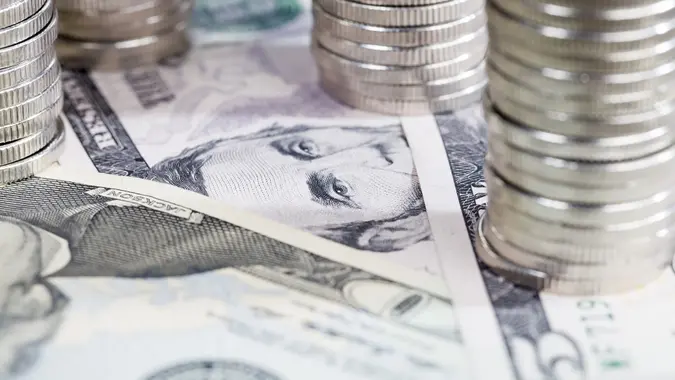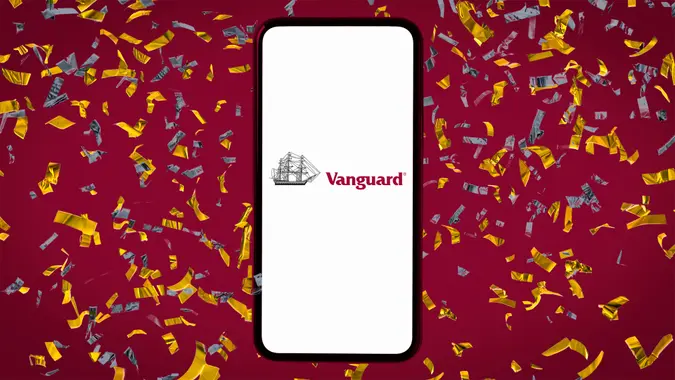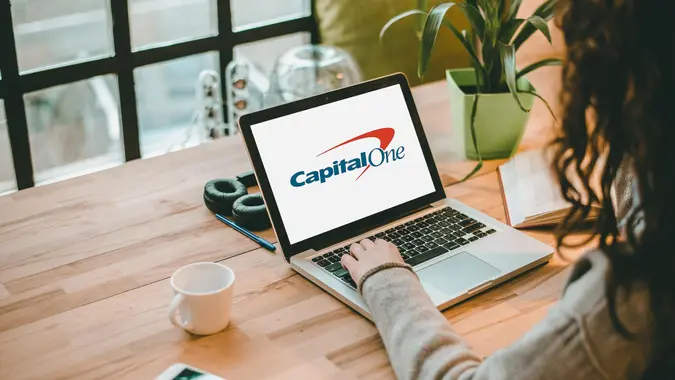Discover CD Rates: What To Know Before You Open One

Commitment to Our Readers
GOBankingRates' editorial team is committed to bringing you unbiased reviews and information. We use data-driven methodologies to evaluate financial products and services - our reviews and ratings are not influenced by advertisers. You can read more about our editorial guidelines and our products and services review methodology.

20 Years
Helping You Live Richer

Reviewed
by Experts

Trusted by
Millions of Readers
Discover® Bank, Member FDIC, does not currently publish certificate of deposit (CD) rates online following its acquisition by Capital One. For current rates, available terms and minimum deposit requirements, customers need to contact Discover Bank directly at 1-800-347-7000.
Discover CD Rates
The CD rates below reflect Discover Bank offerings as of Dec. 19, 2025. Discover Bank no longer publishes current CD rates online, and these rates may no longer be available.
| Term | APY | Minimum Deposit |
|---|---|---|
| 3 months | $0 | |
| 6 months | $0 | |
| 9 months | $0 | |
| 1 year | $0 | |
| 18 months | $0 | |
| 2 years | $0 | |
| 30 months | $0 | |
| 3 years | $0 | |
| 4 years | $0 | |
| 5 years | $0 | |
| 7 years | $0 | |
| 10 years | $0 |
Good To Know
Capital One now manages all Discover Bank CDs. For current options and rates, check out Capital One CD rates.
Pros and Cons of Discover Bank CDs
Here’s a look at the advantages and disadvantages Discover Bank CDs featured.
Pros
- Competitive interest rates: Discover CD rates were higher than the national average.
- No minimum deposit requirement: You could open a CD with no minimum deposit amount.
- Interest is compounded daily: CD interest got compounded daily and credited monthly.
Cons
- Early withdrawal penalties: These penalties applied to all Discover CD accounts.
- Not a liquid investment: You couldn’t easily access cash with a CD.
- Online banking only: There are no physical branches and you could only open a CD online.
How Much Can You Earn With a Discover Bank CD?
The amount you earn from a CD depends on:
- Your initial deposit amount
- The length of the CD term
- The annual percentage yield (APY) offered
Here’s a simple example showing estimated earnings:
| Deposit Amount | Term Length | APY | Estimated Interest Earned* |
|---|---|---|---|
| $1,000 | 1 year | $39 | |
| $2,000 | 2 years | $146.59 | |
| $5,000 | 5 years | $967.18 | |
| $10,000 | 10 years | $4,242.87 |
How To Open a CD with Discover Bank
Savers interested in opening a Discover Bank CD need to contact the bank directly to confirm current rates, available terms and minimum deposit requirements.
Keep In Mind
If you already have a Discover Bank account, you should continue using Discover’s website, mobile app or customer service to manage your CD or ask about available options. Discover will contact customers directly if any changes affect their accounts.
Discover CD Rates vs. Other Banks
How did Discover Bank CDs stack up against other banks? Here’s a side-by-side comparison:
| Bank | 1-Year CD | 5-Year CD | Minimum Deposit |
|---|---|---|---|
| Discover | $0 | ||
| Ally | $0 | ||
| Synchrony Bank | $0 | ||
| Capital One* | $0 |
Is a CD Right for You?
You will have to analyze your personal situation to decide whether a CD is right for you.
Ideal for:
- Predictable returns: CD rates are fixed, so investors looking for predictable returns will gravitate toward this investment.
- No need for immediate cash: CDs typically have early withdrawal penalties, so if you need cash fairly quickly, you may want to consider investing in another product.
Not great for:
- Investors seeking higher returns: If you’re looking for higher returns, you may want to consider stocks or mutual funds.
4 Quick Tips for Getting the Best CD Rate
Keep these tips in mind when shopping around for the best CD rates.
1. Consider Relationship Banking Perks
Some banks offer higher APYs if you have an existing relationship with the bank or have multiple accounts.
2. Compare Multiple Terms
Shop around at multiple banks or credit unions and compare similar term CDs to find your best APYs.
3. Look for Promotional or Limited-Time Offers
Many banks offer promotional and limited-time offers. It pays to check in from time to time to see if these offers are available.
4. Use a CD Laddering Strategy if Liquidity Matters
If you need access to money, using a CD laddering strategy may help with liquidity.
Discover Bank CDs: FAQ
Here are the answers to some of the most frequently asked questions regarding Discover CD rates.- What is the minimum deposit for a Discover Bank CD?
- You could open a Discover CD with any amount — there was no minimum.
- Do I need a Discover Bank account to open a CD?
- No, you didn't need a Discover Bank account to open a CD.
- What happens if I withdraw before the term ends?
- Typically you will incur a penalty if you withdraw early from your CD.
More on Discover Bank
- Discover Bank Review
- Discover Bank’s Newest Promotions
- Discover Bank Routing Number
- How To Avoid Discover Monthly Maintenance Fees
- Discover Bank Savings Account Rates
Sarah Sharkey, Sean Dennison and Daria Uhlig contributed to the reporting for this article.
*Capital One interest rates accurate as of 01/29/2026. See website for all current rates.
Rates are subject to change; unless otherwise noted, rates are updated periodically. All other information on accounts is accurate as of Jan. 29, 2026.
Editorial Note: This content is not provided by any entity covered in this article. Any opinions, analyses, reviews, ratings or recommendations expressed in this article are those of the author alone and have not been reviewed, approved or otherwise endorsed by any entity named in this article.
 Written by
Written by  Edited by
Edited by 

























